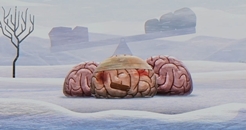 How compassion can triumph over toxic childhood trauma
How compassion can triumph over toxic childhood trauma
From an article by The Conversation
Adverse childhood experiences, commonly called ACEs, include witnessing verbal or physical conflict between parents and having a parent with a mental illness or substance-abuse issue. They also include parent separation, divorce and incarceration and the experience of neglect or abuse (sexual, physical or emotional) as a child.
ACEs are common. In the USA, taking a sample of five states, approximately 60 per cent of the general population report experiencing at least one before the age of 18. More than eight per cent of the population report experiencing four or more ACEs. Research has consistently found that the more adverse childhood experiences a person has, the greater their risk for later health problems. [See another blog on this site - Adverse Childhood Experiences (ACEs) and future health].
Research by the University of Calgary has been published on how ACEs affect women's physical and psychological health in pregnancy. The latest findings suggest that when mothers who have experienced ACEs feel supported by the people around them, including friends and family, their risk of having pregnancy complications is substantially reduced.
When adults become parents, the effects that ACEs have had on their own body, mind and behaviour can influence how they experience their pregnancy and their pregnancy health. It can affect how they are able to interact with, and care for, their children.
Their research has shown that mothers who experience a higher number of ACEs are more likely to have gestational diabetes and hypertension and are also more likely to deliver a baby who is born too small or too soon or needs intensive care. Even if the baby is born full term, children born to mothers with ACEs are at risk of developmental delay. For each additional maternal ACE, there is an 18 per cent increase in the risk that their child will be identified as delayed. Ultimately, they have found that the effects of adversity can be passed down from one generation to the next.
However, with the right supports in place, their work also reveals that mothers can show remarkable resilience to adversity. What helps promote resilience in the face of stress and adversity? How do we help families triumph over past experiences?
For some, even just being aware of how past adversities and traumas can impact their current functioning, including physical and mental health, is an important first step. This can start the road to recovery. Some people may benefit from additional counselling and professional support to launch them into a brighter future.
For others, it's the compassionate response they receive when they talk to someone about their early experiences. People should replace saying "what's wrong with you?" with "what happened to you?" —to allow for a more compassionate and understanding approach to individual experiences, including trauma and adversity.
Supportive relationships are indeed a key ingredient for change. Support from friends, family, spouses or neighbours can boost the quality and security of life for people. Community supports also matter. For example, the work at the University suggests that when women participate in low-cost community programs and recreation, such as story time at the library, and when they can be encouraged to develop or engage in social support networks, their children do better.
Investing in families with young children makes financial sense too. Strategies that help new parents develop supports and parenting skills have a particularly high return on investment —improving outcomes for parents, children and their families and avoiding later, higher-cost interventions.
Whether we have been affected by ACEs or not, we can all play a role in fostering resilience by being the buffering support to our friends, family members and neighbours.
The silver lining is that ACEs don't define who we are or who we can become. Each and every one of us can help make a difference in someone's life.
Read the full article here.
Retweet about this article:
From an article by The Conversation, 27/03/2019